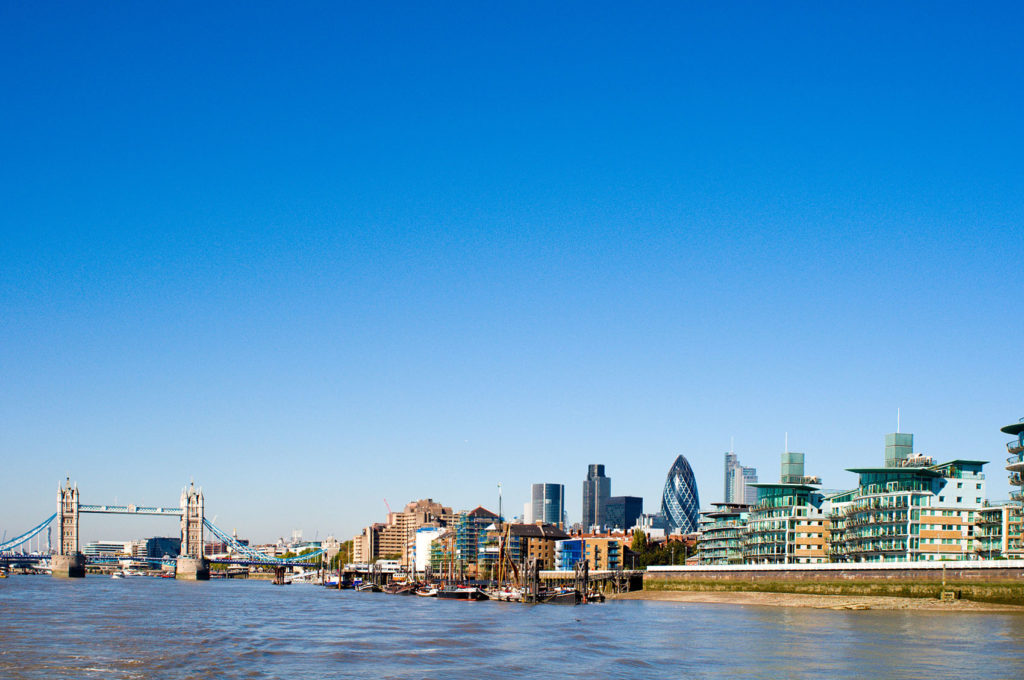We regularly update this report to track the pandemic’s effects on the labour market.
Job postings on Indeed UK continued to rise amid the ‘freedom day’ final stage of easing restrictions (restrictions in England were lifted on 19 July). Job postings — a real-time measure of labour market activity — were 19.6% above the 1 February 2020, pre-pandemic baseline, seasonally adjusted, as of 30 July 2021. That was a 4.8 percentage point (ppt) gain from a fortnight ago. Improvements in the job posting trend have been sustained for sixteen consecutive weeks as the economy has rebounded from its lockdown lows.
Retail hiring strengthens
Retail job postings saw the biggest improvement in trend during the past fortnight, followed by loading & stocking, cleaning & sanitation, customer service and therapy. Hospitality & tourism also saw a solid gain and has now surpassed the pre-pandemic baseline, having been among the slowest-recovering sectors until recently.
By contrast, hiring slowed in the construction, nursing, media & communications, dental, mechanical engineering and logistic support categories.
London slips to bottom of regional rankings
Job postings are above the pre-pandemic baseline in all regions of the UK. However, considerable variations in performance persist. Whereas in the North East, jobs postings are 50% above the baseline, in London they are just 3% above it. The capital has dropped to the bottom of the regional rankings, having been overtaken by Northern Ireland. Despite easing restrictions, London commuters appear in no rush to return to the office in numbers. Mobility data suggests that workplace attendance in the City of London financial district has been rising but is still running at less than half of pre-pandemic levels.
Middlesbrough leads job postings recovery
By cities and large towns, many of the places with the strongest job postings recoveries have been in the North and Midlands. Postings are furthest above pre-pandemic levels in Middlesbrough, followed by Barnsley, Peterborough, Hull, Stoke, Mansfield and Wakefield.
Aberdeen, Crawley, Aldershot, Cambridge, Slough, Belfast and London are furthest below pre-pandemic levels.
As we discussed in a previous post, posting recovery has been fastest in cities with higher shares of manufacturing, distribution, healthcare and education jobs, while areas reliant on hospitality, tourism and highly paid, white-collar, work-from-home jobs trail. Some cities such as Aberdeen (oil and gas) and Crawley (aviation) are highly exposed to specific sectors which have been hard-hit in the pandemic.
We host the underlying job-postings chart data on Github as downloadable CSV files. Typically, it will be updated with the latest data one day after this blog post was published.
Methodology
All figures in this blog post are the percentage change in seasonally-adjusted job postings since 1 February, 2020, using a seven-day trailing average. 1 February, 2020, is our pre-pandemic baseline. We seasonally adjust each series based on historical patterns in 2017, 2018, and 2019. Each series, including the national trend, occupational sectors, and sub-national geographies, is seasonally adjusted separately. We adopted this new methodology in January 2021.
The number of job postings on Indeed.com, whether related to paid or unpaid job solicitations, is not indicative of potential revenue or earnings of Indeed, which comprises a significant percentage of the HR Technology segment of its parent company, Recruit Holdings Co., Ltd. Job posting numbers are provided for information purposes only and should not be viewed as an indicator of performance of Indeed or Recruit. Please refer to the Recruit Holdings investor relations website and regulatory filings in Japan for more detailed information on revenue generation by Recruit’s HR Technology segment.






